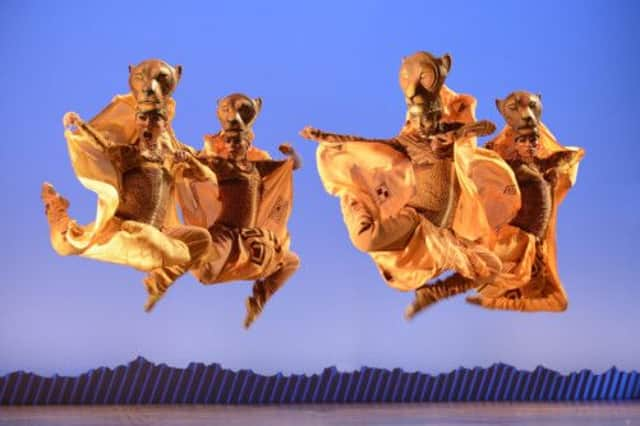Joyce McMillan: Ticket prices hurt honest debate


The customer is one of the happy crowd who – by joining a long early-morning queue – landed one of the 100 tickets that go on sale for 50p, on the Saturday before the opening of each Cits’ production. And the price is special not only because it is very low – compared with a £14-£19 full price ticket – but because it represents a deliberate tribute to that great phase of the Citizens’ history, back in the 1970s when the great north wall of the theatre bore the giant legend “All Seats 50p”, in writing that could be read a quarter of a mile away, across the Clyde.
It wasn’t then – and it isn’t now – that the Citizens’ was a home of “poor theatre”, in the sense explored by the great Polish director, Jerzy Grotowski, in the 1960s.
Advertisement
Hide AdAt the Citizens,’ during the famous directorship of Giles Havergal, Philip Prowse and Robert David MacDonald, there was always a fair amount of public subsidy, and what looked like a lavish and gorgeous approach to scenic design. The triumvirate knew, though, that theatre needed an open, accessible, and honest relationship with the widest possible audience to have any hope of remaining alive, and truly radical. The “All Seats 50p” slogan was consciously designed to break down any barriers of class and wealth that still cling around the idea of theatre, and to invite all the people of Glasgow into the building; they came in their thousands, and for many the experience was life-changing.
And I thought about that phase in the Citizens’ history again, as I made my way into the Edinburgh Playhouse for last Tuesday’s gala opening of the blockbuster musical, The Lion King. In terms of ticket pricing in Scotland, The Lion King seems to mark a milestone, in that for this show, the average ticket price approaches £50, exactly a hundred times more than those famous Cits’ tickets. For theatre in Scotland – as opposed to opera or rock concerts – this really is top whack; and when it comes to working out what it means for our experience of theatre, the picture that emerges is complex, even puzzling.
It’s certainly not, for example, that the Edinburgh Playhouse is becoming an elite venue, unfriendly to a mass audience. Now owned and run by Ambassadors’ Theatre Group, it’s a massively popular venue with an enviably accessible image; and a hugely valuable commercial operation, bringing massive benefits to the top-of-Leith-Walk area where it sits.
Yet there’s no denying the truth glimpsed by the Cits’ triumvirate, that where people have invested so much money in seeing a show, there is no chance of the open, fearless, rough-edged dialogue with audiences that pushes theatre forward, and makes it matter. The level of hype surrounding shows like The Lion King is overwhelming, with everyone involved – from the show’s backers, producers, artists and venues to every member of the paying public – sharing the same vested interest in describing the event as amazing and life-changing, almost regardless of its real artistic quality.
And without arguing that shows like The Lion King shouldn’t exist – how could I, when they entertain so many, and keep so many theatre professionals in work? – I would say that the world of hype and high prices they inhabit makes it almost impossible for audiences to engage in an honest dialogue about the value of the work. After all, if you’ve just spent £100 on a night out for two, then failing to enjoy it is not an option, for most people; and at that point, the vital, truthful encounter between actors and audience dies, and something else begins.
• The original headline of this story incorrectly indicated that this was a review of The Lion King at the Edinburgh Playhouse. This has now been amended.